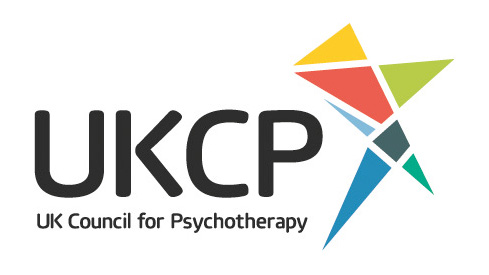<p style="text-align: justify">The UKCP or the UK Council for Psychotherapy sets out a code of ethics, more formally known as the Ethical Principles and Code of Professional Conduct that all UKCP members must follow.</p>
<p style="text-align: justify">While it is a professional organisation and clients seeing a psychotherapists who is a member of the UKCP should reasonably expect the professional will follow the code, having a basic understanding of what the psychotherapist can and cannot do while providing treatment, or after treatment is completed, can be very helping.</p>
<p style="text-align: justify">At Philippe Jacque &; Associates following the UKCP is an integral part of the service provided to all clients. It assures everyone that only the highest quality and level of professional services will be provided for anyone seeking treatment through psychotherapy or psychotherapeutic counselling through this highly regarded central <a href="http://www.philippejacquet.co.uk" target="_blank" rel="noopener noreferrer"><strong>London psychotherapist</strong></a> and his associates.</p>
<p style="text-align: justify"><img class="aligncenter" src="http://www.technology.org/texorgwp/wp-content/uploads/2015/03/Balanced_Life_Institute_-_Santa_Monica_Psychotherapy.jpg" alt="The UKCP Code Of Ethics: A Guide For Clients" width="500" height="335" /></p>
<h3 style="text-align: justify"><strong>Key Factors to Consider</strong></h3>
<p style="text-align: justify">There are many different components to the UKCP Code of Ethics that are distinctive to therapeutic settings. These rules have come about because of the unique relationship between a psychotherapist or a counsellor and the client. This is a relationship that is to be based on trust, compassion and respect, and best practices.</p>
<p style="text-align: justify">To protect clients completely through this often deeply revealing process the Code of Conduct is very clear on what roles and responsibilities the professionals may and may not take on in their role as a therapist. As a client, understanding what is acceptable and what is a violation of the Code of Ethics will allow a full understanding of the process.</p>
<h3 style="text-align: justify"><strong>Best Interest of the Client</strong></h3>
<p style="text-align: justify">One of the most important and the first ethical principle outlined in the UKCP Code of Ethics is about the best interest of the clients. The psychotherapist is required to always consider the responsibility of caring for their clients, showing respect in treatment, and to avoid any exploitation of the client psychotherapist relationship for any purpose.</p>
<p style="text-align: justify">In addition, a psychotherapist following the Code of Ethics will not enter into any other role with the client, which is known as a dual role, which may conflict or infringe on the therapeutic role. This includes having a personal relationship with the client outside of the role as a professional.</p>
<p style="text-align: justify">Autonomy, or the right to make decisions in their own best interests, is always provided for the client. When working with children this is slightly different and the therapist should know and follows all laws and regulations for working with children. All professionals under the Code of Ethics will take the appropriate action should a child or an adult in the therapist’s care be at risk for harm of self or others.</p>
<h3 style="text-align: justify"><strong>Confidentiality</strong></h3>
<p style="text-align: justify">While all aspects of the Code of Ethics are equally important, an area of particular concern for many clients in the issue of confidentiality. With experience in working with leaders in the community, professionals, athletes and celebrities, Philippe Jacquet is very mindful of the essential component of privacy for all clients.</p>
<p style="text-align: justify">The Code of Ethics clearly protects this right for clients, including providing clients with advance notification under the specific circumstances that the psychotherapist may have to disclose confidential information. This will be provided to the client before the service is provided.</p>
<p style="text-align: justify">The psychotherapist will also be required to safeguard the client’s confidentiality when publishing or consulting. By removing any identifying information, the psychotherapist can protect the client’s identification and provide complete anonymity.</p>
<h3 style="text-align: justify"><strong>Other Issues</strong></h3>
<p style="text-align: justify">There are ten other sections within the UKCP Code of Ethics including detailed information the psychotherapist must follow regarding:</p>
<ul style="text-align: justify">
<li>Diversity and Equality</li>
<li>Professional Conduct</li>
<li>Professional Knowledge, Skills and Experience</li>
<li>Communication with the client</li>
<li>Obtaining Consent</li>
<li>Record keeping</li>
<li>Physical or Mental Health of the psychotherapist as it impacts treatment of clients</li>
<li>Professional Integrity</li>
<li>Advertising</li>
<li>Insurance</li>
</ul>
<p style="text-align: justify">The Code of Ethics also requires all psychotherapists to be aware of the complaints procedures and all relevant laws pertaining to their professional practice.</p>
<p style="text-align: justify">All therapists operating under the Code of Ethics are required to accept the responsibility for activating procedures against other professionals and colleagues if they are failing to follow the Code of Conduct and Ethics as written.</p>
<p style="text-align: justify">By having the UKCP Code of Ethics as the foundation for working with clients, the safety of all involved is clearly front and centre in all aspects of the interactions. This is a comfort to the clients, and also a comfort to the professionals to know they are working within established guidelines in the best interests of the people they serve.</p>

The UKCP Code Of Ethics: A Guide For Clients
